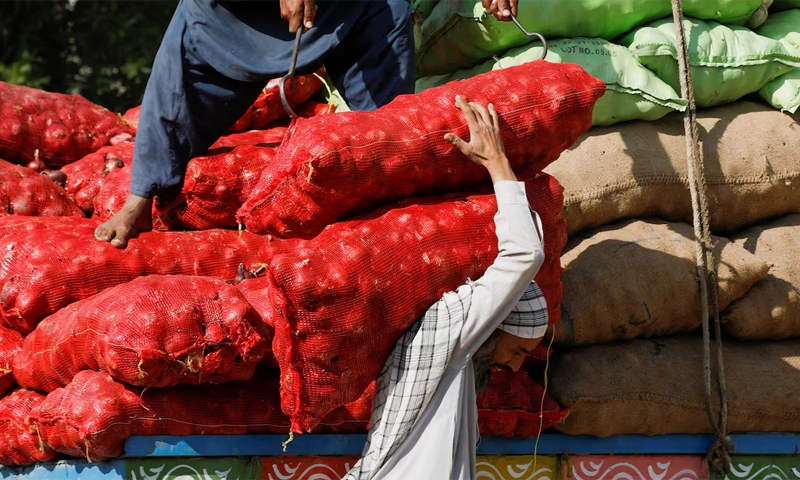- Web
- Feb 05, 2026
Food, fuel prices accelerate annual inflation to 4.1pc in July

ISLAMABAD: Consumer inflation accelerated to 4.1 per cent year-on-year in July, up from 3.2 per cent in June, driven by rising prices for food items, fuels and medicines, the Pakistan Bureau of Statistics said on Friday.
July’s consumer price inflation (CPI) month-on-month was 2.9 per cent, the bureau said.
The higher inflation reading follows the State Bank of Pakistan’s assessment of a deteriorating inflation outlook, leading it to leave the key interest rate unchanged at 11 per cent.
On Wednesday, the central bank’s monetary policy committee said that energy prices, particularly for gas, had risen more than expected, and it considered the real policy rate should be adequately positive to keep inflation in the 5 per cent–7 per cent target range.
Pakistan is pushing through a series of economic reforms under a $7 billion International Monetary Fund programme, including a contractionary government budget passed in June that slashes spending to curb the fiscal deficit.
Earlier on late Thursday, the government decided to cut the petrol prices, providing some space to the government amid growing criticism, as the cost-of-living crisis due to shrinking purchasing power has made the lives of an overwhelming majority miserable.
SYSTEMATIC FAILURE
However, there is very little possibility of people getting any immediate relief as the poor price control mechanism means the prices of essential commodities thanks to higher transportation cost are seldom reduced in a corresponding manner.
At the same time, the high-speed diesel prices were increased to Rs285.83 after being hiked by Rs1.48 per litre.
Hence, the higher high-speed diesel prices will be keep the transportation costs higher, as it is the fuel used for both goods and public transport.
The reason behind raising the fuel prices has been the government aim to boost revenue collection for meeting the IMF targets.
In short, it is the systematic failure to collect direct taxes which is the propelling the fuel, electricity and gas prices in Pakistan.
However, the seasonal factors (monsoon rains etc) are mainly responsible for the rising fruits and vegetable prices, but the transportation costs as well as rent and electricity prices are complicating the affairs.
Retailors/vendors obviously take into account all of their expenditures.





